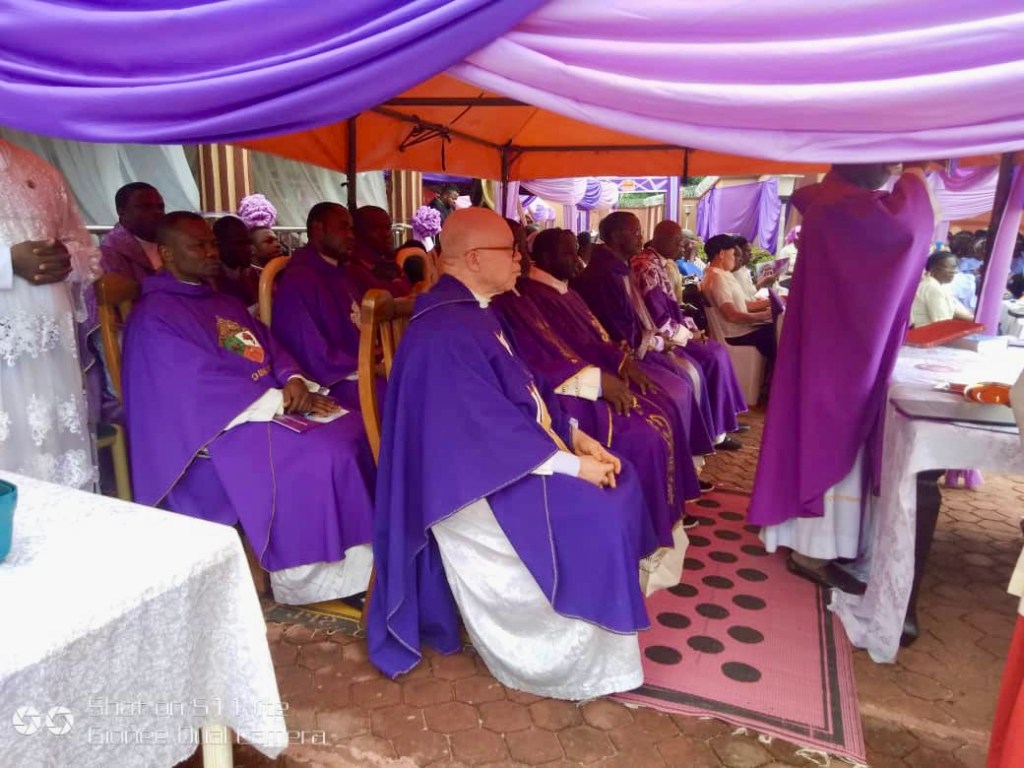Let me start this with a disclaimer… The feminist referred to here has nothing to do with a bitter, angry woman, or someone who hates men. Rather, it refers to someone who believes that women should be heard and not just seen.
Someone who believes that a woman is relevant, the girl child is important, the girl child should have as much education as she desires and she should be given equal opportunities as men.
She encapsulated this with one word – Nwanyibuife – an Igbo word which when translated literally meant that a woman is valuable.
The above might seem trivial or regular to someone but she grew up in an era when a male child was everything (still is in most places today). In homes where educating the boy was valued above educating the girl, where a girl child would be stopped from going to school if there was a new baby while the boys where undisturbed or unperturbed. In days when women were talked down on, looked down on, mistreated and not expected to fight back, and generally considered as properties.
My Mum gave birth to six girls. She had the same dreams for us as her two boys. She told all of us to study hard to become someone in life. She said that we would never lack jobs and declared that we would work in the “highest offices.”
She was never of the opinion that her female children would be totally dependent on their husbands for their upkeep. She emphatically told us to make our money, and stated that a woman who was too dependent on her husband would open up herself to insults and mistreatments. Nwoke akpalia gi; the man would insult you!
My Mum taught us about self respect; Mmadu na-adi nma I kwanyelu onwe ya ugwu; it is good for one to respect oneself. She taught us to carry ourselves well and comport ourselves like ladies both in speech and general disposition.
In the house where I grew up, each flat had two verandahs. The compound facing our back verandah was owned by a man who had lots of sons and male apprentices. As children, we played on both verandahs but as we grew into teenagers, my Mum would not let us spend long periods of time standing or idling away on the verandahs except we were maybe doing chores. She taught us to value ourselves as women, “nwanyi na-adi nma e zobe nata onwe ya” inferring that it was only ladies of easy virtues that displayed themselves like items on the roads or verandahs.
She spoke up and showed us that our voices could be heard. She taught us to fight and take a stand for ourselves, not to be intimidated because we were women whether by society or by anybody.
She had class, she had style, she had poise, she was in tune with her environment, knew the trends and constantly strove to achieve her dreams and improve on herself. She loved books and would read as much as she could in both English and Igbo.
Being a feminist doesn’t mean that one doesn’t have respect for men, my Mum did. She both respected, helped and treated them well, she was peaceful but never one to be trampled on.
One day, on my way back from University on a quick trip home, I boarded a bus with friends. We were the first to arrive, so I chose to sit in the front outer seat by the window (a place usually reserved for men for reasons best known to the drivers and their male cohorts). When the bus had almost filled up and we had paid our fares, I was asked to shift to the inner seat so the man who had just arrived would sit on my seat. I refused to move and insisted that I either sit there or the bus would not move. The bus driver and his cohorts gathered and started talking, most of their speech derogatory, I ignored them and when they got tired, the man entered, sat on the inner seat and we moved!
Humility they say is great power under control. My sisters and I would always have a voice and one fundamental reason is because we were raised by a woman who had one and used it. #UmuBene
In Ever Loving Memory of our Mother
Lady Benedette Ugwunwa Ezeanya
Fashion Mazi o!
4th April, 1959 - 29th June, 2019
The Storytela








